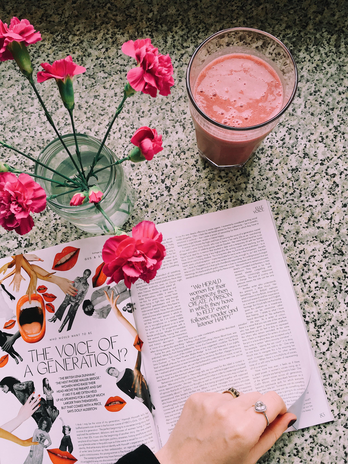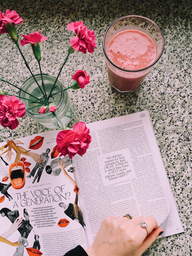Senior year of high school, my dual credit literature teacher asked in an assignment what we think we could improve on as writers. Convinced all my peers were illiterate and I’m naturally gifted, I said “Nothing, I don’t need to improve on anything.” This over confident mindset stemmed from a comment my AP language and rhetoric teacher left on one of my practice exam essays. He said “Emily, in my eyes this is perfect. I have nothing left to teach you.” If a teacher I looked up to immensely said this, I must emulate Shakespeare.
While my AP language teacher may not possess anything else to teach me in the realm of AP language, I now know there prevails other writing styles I need to improve upon. Entering college, I wrote for The Daily Texan, and I faced several reality checks, but this experience strengthened my writing. As well as when I served as the director of written publications for Hook’d Magazine, I refined my skills through editing other writers’ pieces.
However, I still look back on articles I’ve published and wish I could unpublish them. Whether I shared an excessive amount of my life and thoughts on the Internet or used surplus “be” verbs, I cringe reading some of them. I’ve always felt writing came naturally to me, but I’ve learned even the naturalist writers need to learn style, especially journalists.
In J310, reporting words here at UT, professor Diana Dawson helped me improve my structure. Oftentimes I would attend her office hours and she would rearrange my paragraphs and reset my introductory scene appropriately.
In a class I’m currently taking, magazine writing/production with Raoul Hernandez, he teaches me to connect with every word on the page. While I’ve always known not to use weak verbs; “is, are, be, being,” etc, I catch myself continuously using them after four years of editors telling me not to. Professor Hernandez will hold one accountable for this. He comes across as harsh but he means well.
Additionally, my writing goes through phases. In periods of my life my writing proves well-written, others it’s conspicuous I didn’t try. Several of my articles published on Her Campus read as if I submitted a diary entry and didn’t look over it. However my articles on The Daily Texan, read cohesive and professional. I like Her Campus for the fact I can write anything I want and treat it as a diary, but I know even when writing pieces such as this one, I need to hold myself accountable.
Furthermore, I often question if I’m in the right field, if my writing can withstand a corporate publication. Do I enjoy this enough to do it for the rest of my life? My current busy schedule as a student makes me feel writing fatigued, but ultimately when I finally do convince myself to open an empty document, a fiery passion lights between my fingertips and the keyboard.
In creative fields, imposter syndrome is probable because it’s all subjective. There’s no equation, data set or measurement to confirm perfection before publication. Most writers have their judgment, their editors’ judgment, a copy editors’ judgment, and a set of AP style rules. Impressions and feedback are what creatives thrive off of.
I continue to perceive my content as unsatisfactory, but I must remind myself I’m still growing. Every single good and bad article is part of the learning process, and I’m grateful for the journey I’m taking.


